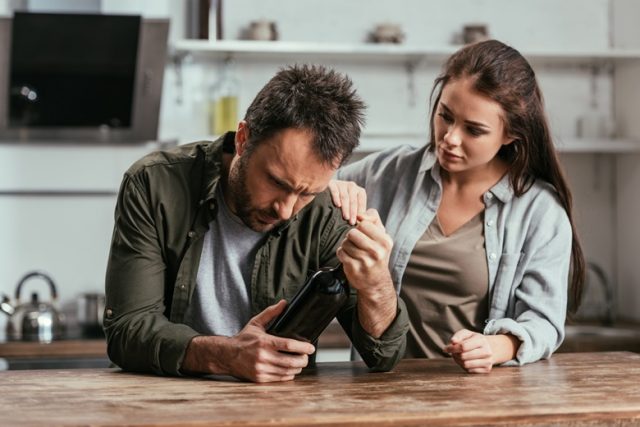Mental Health
Tips for Dating Someone in Addiction Recovery

Last Updated on January 21, 2026 by Joshua Isibor
With differing viewpoints, lifestyle habits, family histories, likes, and dislikes, relationships can get complicated. Dating someone who’s recovering from a drug or alcohol addiction can add new layers to your relationship with issues related to mental health, physical wellness, boundaries, expectations, and honesty.
It’s important to support your loved one in recovery. They are going through a wide range of emotions and changes — addiction therapy, new habits, thought patterns, overcoming physical dependency on substances — and they will need you every step of the way to offer encouragement and support.
While you are not responsible for the success of their sobriety and mental wellness, you can be a safe space for your partner to come to in times of need. As they overcome an addiction to substances, they’ll need a strong network of social support, and you’re an important part of that network.
Should You Date Someone in Recovery?
Some people are wary of dating those in addiction recovery and for good reason. You have to be ready for the emotional impact of loving someone in recovery, and you should be willing to do what it takes to support them. This might mean abstaining from substances while you’re around your partner, taking them to therapy or addiction treatment sessions, helping them to navigate mental health disorders and more.
Consider the stability of your partner before entering a relationship with them. They should have some level of sobriety under their belt and feel ready to commit to a relationship. For some people, relationships can be difficult to manage in the early stages of recovery, which is why many experts recommend waiting about a year before dating. But this can differ from person to person, as there are no set rules when it comes to dating during recovery.
14 Tips for Dating a Partner in Recovery
Here are several things to keep in mind as you navigate your relationship with your partner in recovery from alcohol or drug addiction.
1. Take the Relationship Slow
There is no need to rush your relationship. When loving someone in active recovery from a substance use disorder, it’s important to allow for plenty of time and space to process this level of emotional and relational shift.
Take your time getting to know one another and encourage your partner to spend as much time on their recovery as they need. Because if you don’t have a healthy partner who’s focused on recovering, you will likely run into deeper issues down the road.
2. Don’t Take Responsibility
The loved ones of people in recovery often feel responsible for their recovery. You are there to love and support them, but remember that it’s their recovery journey, not yours.
If you find yourself worrying over your actions and their impact on your partner, or watching your partner’s every move to keep them from relapsing, take a step back and consider your role in the relationship. The more pressure you put on yourself to keep them safe and sober, the more difficult you may find it is to feel free and loved in the relationship.
3. Create Boundaries
Learning to set and uphold boundaries is one of the most challenging tasks for a partner of someone in recovery. But these boundaries are meant to keep yourself safe and keep your partner accountable for their own actions. Practice saying “no,” decide what is and is not acceptable to do around you, and communicate those boundaries clearly to your partner.
For example, you can say “You cannot drink alcohol when you’re with me,” or “I will not lend you money to use on drugs or alcohol.” Communicating these messages is hard and can even feel hurtful in the moment, but this will help your partner to stay on track and know that you will not sit back and watch their drug or alcohol use.
4. Set Expectations
Talk to your partner about what you expect from your relationship: your intentions with them, recovery activities you expect them to participate in, consequences that may happen if your boundaries are broken, and more.
If you share your clear expectations from the start, it will help to eliminate ambiguity and set your relationship up for success moving forward. This is especially important when communicating your expectations for their recovery (such as, “I expect you to attend an AA meeting daily”).
ALSO, READ Depression in a Relationship, Causes And What To Do
5. Get Connected with Others
When you have a deep emotional connection like addiction recovery, it’s easy to intertwine your lives and become fully dependent on one another. Both you and your partner need outside support, so be sure to connect with friends, family members, neighbors, and other people who can support you. And for the partner of someone in recovery, have a trusted person you can talk to about their recovery process and its effect on you so you always have an outlet.
6. Consider Therapy
If you are in a serious relationship with your partner, you might consider going to therapy. This can mean individual therapy for yourself so you have someone to talk to, couples therapy, or a group therapy session where loved ones are welcome. Deeper issues are bound to come up when someone is recovering from addiction, so it’s helpful to have a healthy source of outside support and guidance to work through some of those issues.
7. Encourage Them to Get Help
If your partner is not yet in some sort of therapy program, support group, or addiction treatment program, encourage them to start one. Make sure that they are always learning and growing in their recovery and taking active steps toward overcoming the addiction. While you are a great resource for them, you can’t be their entire support system.
8. Explore Individual Interests
Make time to work on personal growth separately so you can be healthier for each other as a couple. People in recovery can sometimes replace one addiction with another — in this case, that might look like replacing the high of drug addiction with the high of love addiction.
This can create an unhealthy attachment and stunt their recovery progress. A great way to prevent this from happening is to spend time separate from one another. During this time, your partner can build on the skills learned in recovery, improve their self-esteem and self-efficacy, and find other avenues of support.
9. Learn Their Triggers

You should ask your partner what their triggers are. This differs for everyone, but some examples of triggers include witnessing substance use, seeing old people or places associated with the addiction, financial problems, emotional issues, or stress.
Have an open conversation about what their triggers are and make an effort to avoid those things. For example, if your partner is triggered by seeing pill bottles, try not to leave any of your medications out for them to stumble on.
10. Love Them for Who They Are
We tend to enter relationships with hopes that our partners will change eventually. When you start a relationship with someone in recovery, have a realistic mindset about what you might expect. Love them for exactly who they are and the issues they’re facing.
While the symptoms of addiction and mental illness can be lowered and overcome, don’t enter the relationship with the expectation that this will never be an issue again. Know that recovery is a process, and it’s not always a perfect one.
11. Focus on Communication
Lack of communication can be damaging in any relationship, and it can put major stress on a relationship involving someone in recovery. You’ll need to communicate about many of the issues listed above — boundaries, expectations, triggers — and more. Be honest with your partner about your concerns, listen to them when they share their experiences with addiction, and don’t be afraid to open up the lines of communication when there’s an issue.
12. Prioritize Self-Care
You might get so caught up in taking care of your partner in recovery that you forget to take care of yourself. Make self-care a priority for you so that you’re healthy physically and emotionally.
This might look like spending time by yourself, talking to a trusted friend about your relationship, making time for rest and relaxation, having nutritious meals, and getting quality sleep. The better you feel, the better you’ll be able to support your partner in recovery.
13. Learn About Addiction
You need to understand addiction to understand your partner. Explore resources such as those provided by the National Alliance on Mental Illness (NAMI) or National Institute on Drug Abuse (NIDA) to learn about how drugs affect the body, the mental illnesses that can accompany addiction, and more. You can also get connected with a support group for loved ones of people in recovery to learn more about the impact of addiction on friends and families.
14. Ask Questions
Remember to speak up whenever you need to. If there’s something you don’t understand about your partner’s addiction or recovery process, as them to explain. It’s better to ask than to assume so you’re always on the same page.
ALSO, READ How To Deal With A Relationship Rut In Pandemic Times
Originally posted 2022-02-17 23:11:38.

-

 Text Messages2 years ago
Text Messages2 years agoBEST LOVE CONFESSION MESSAGES FOR HER OR HIM
-

 Health4 months ago
Health4 months ago5 Unknown Ways To Maintain Skin Health
-

 Sex Education2 months ago
Sex Education2 months ago10 Simple Hack to Make a Girl Send Her Nudes
-

 Text Messages2 years ago
Text Messages2 years agoHappy Birthday Cousin, wishes and messages
-

 Text Messages2 years ago
Text Messages2 years agoHeart Touching RIP Uncle Quotes
-

 Uncategorized3 months ago
Uncategorized3 months agoHOW TO KISS A BOY FOR THE FIRST TIME
-

 Text Messages2 years ago
Text Messages2 years agoFreaky and Dirty Paragraphs For Him Copy And Paste Yahoo
-

 Text Messages2 years ago
Text Messages2 years agoBest Good Luck Wishes Before and After Surgery, for Family and Friends













